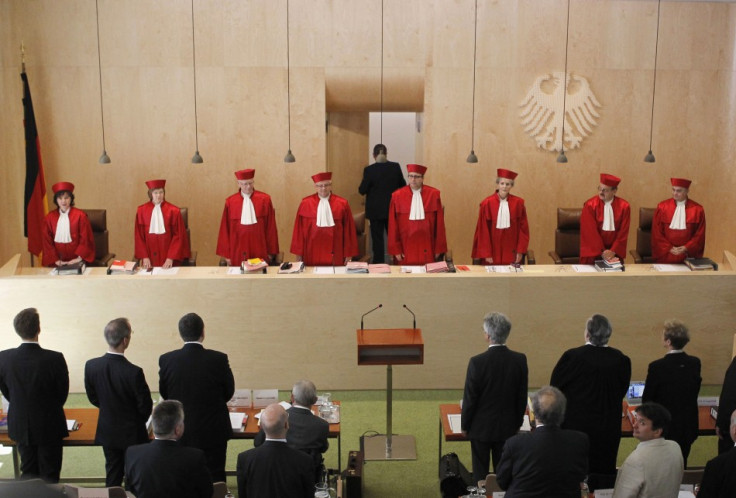German Court Rejects Bid to Delay ESM Injunction Ruling

Germany's Federal Constitutional Court has rejected a late bid by a Bavarian lawmaker to delay its planned ruling on the legality of Germany's role in the European Union's permanent bailout fund.
The bid, made Monday by Peter Gauweiler, a member of the Christian Social Union (CSU) in Bavaria, challenged the constitutional legality of Germany's financial support for the fund, known as the European Stability Mechanism (ESM).
The Bundesverfassungsgericht heard the case late yesterday and made its decision Tuesday, setting up a dramatic ruling Wednesday that has implications for not only the fund but the fate of the European Union's rescue effort, the European Central Bank's bond-buying programme and the coalition government of Merkel herself.
The CSU, sister party to Chancellor Angela Merkel's Christian Democratic Union, has been sharply critical of her support for ECB President Mario Draghi's plan to buy "unlimited" amounts of Eurozone government bonds, through the ESM, in an effort to reduce borrowing costs and maintain capital market assets for struggling currency partners such as Spain and Italy. Support came Monday, however, in the form of a tepid endorsement from CSU parliamentary leader Gerda Hasselfeldt, who told the Reuters news agency that she was happen with the conditions tied to the ECB programme despite her "uneasiness" with the intervention.
That's not to say there's been universal support within the CSU. Bavarian finance minister Markus Soeder - echoing the views of federal finance minister Jens Weidmann - said the ECB was taking a "dangerous path" and turning into a "super authority".
Without Germany's 27 percent funding for the ESM, many investors feel the fund will not have the financial strength to back the ECB's bond-buying if markets turn against Spain and Italy in the coming months.
Collectively the ESM and the temporary European Financial Stability Fund form the centrepiece of the EU's "firewall" around the sovereign debt crisis. With a total lending capacity of around €800bn (including prior commitments to Greece from earlier bailouts), the funds have a financial strength equal to the size of Canadian GDP.
Around €80bn in hard capital from the 17 Eurozone members will provide the ESM's base, and it will have the ability to lend up to around €500bn when it's fully operational. The 15 percent capitalisation will be paid by the member states over a three year period (€32bn this year and next and €16bn in 2014). European leaders hope the fund will be strong enough to earn a triple-A credit grade from the three major ratings firms.
Prior commitments from the EFSF are around €192bn based on the EU contributions to bailouts for Ireland, Portugal and Greece. A further €100bn will be earmarked for Spanish banks, but the terms and conditions for the loans, as well as the ultimate size, haven't yet been finalised.
Contributions to the ESM, the permanent form of the fund which will run in tandem with the EFSF for the first few years, will be based on a percentage of the Eurozone member's economic size. For example, Italy is responsible for around 17.9 percent of the €80bn in paid-in capital.
The fund will lend money to ailing economies - and perhaps take direct stakes in banks - in times of distress. Loans from the fund will be senior, in collateral terms, to all existing debts of the borrower expect those owed to the International Monetary Fund (or the pre-committed loans to Greece, Ireland and Portugal).
Short-term loans will be priced at 2 percent premium over the ESM's funding costs (a back-of-the-envelope calculation puts this at around 4 percent). Longer loans will carry a further 1 percent surcharge if they're not repaid after three years.
© Copyright IBTimes 2025. All rights reserved.





















